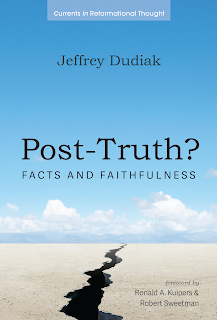"Missing in Action," article by Calvin G. Seerveld, in Pro Rege, Fine Arts faculty issue (51:2, December 2022), 45-52.
Shattering Silos: Reimagining Knowledge, Politics, and Social Critique
Shattering Silos: Reimagining Knowledge, Politics, and Social Critique.Lambert Zuidervaart. Montreal: McGill-Queen's University Press, 2022.
Available at: McGill-Queen's University Press
Publisher's Overview:
Available at: McGill-Queen's University Press
Publisher's Overview:
Questions first raised by Hannah Arendt in the 1960s take on new urgency in the post-truth era, as political leaders blithely reject facts in the public domain: Is truth politically impotent? Are politics inherently false? Is the search for truth still relevant?
Shattering Silos, a companion volume to Religion, Truth, and Social Transformation and Art, Education, and Cultural Renewal, provides a path-breaking response. As in his two previous books, Lambert Zuidervaart challenges the boundaries philosophers set up between epistemology, ethics, and political philosophy. Knowledge, he argues, takes different forms in various social domains, and all are subject to political struggle. A critique of contemporary society must draw on many social domains of knowledge, including the arts and religion, and should recast politics as a striving for truth in the broadest sense. Proposing a new conception of truth - one that emphasizes the unity of knowledge and truth, as well as their diversity among different social domains - Zuidervaart asks what such holism and pluralism suggest about how we understand politics and society. This book proposes a new understanding of large-scale social change, challenging how most people think about knowledge and truth.
Interweaving epistemology, social criticism, and political thought, Shattering Silos aims to help redirect an allegedly post-truth society.
Dancing in the Wild Spaces of Love: A Theopoetics of Gift and Call
Dancing in the Wild Spaces of Love: A Theopoetics of Gift and Call. Currents in Reformational Thought series. James H. Olthuis. Eugene: Wipf and Stock, 2022.
Available at: Wipf and Stock Publishers
Publisher's Description:
In the twenty-first century, amid globalized violence, rising demagogues, and the climate emergency, contemporary philosophers and theologians have begun to debate a fundamental question: Is our reality the result of the overflowing, ever-present creativity of Love, or the symptom of a traumatic rupture at the heart of all things? Drawing on decades of research in postmodern philosophy and experience as a psychotherapist, James H. Olthuis wades into this discussion to propose a radical ontology of Love without metaphysics. In dialogue with philosophers like John D. Caputo, Slavoj Žižek, Luce Irigaray, and others, Olthuis explores issues from divine sovereignty and the problem of evil to trauma and social ethics. Experience in therapeutic work informs these investigations, rooting them in journeys with individuals on the path to healing. Olthuis makes the bold claim that while trauma, pain, and suffering are significant parts of our human lives, nevertheless Love is with us to the very end. Creation is a gift that comes with a call to make something of it ourselves, a risky task we must take on with the promise that Love will win. We are all dancing in the wild spaces of Love: ex amore, cum amore, ad amorem.
Post-Truth? Facts and Faithfulness
Post-Truth? Facts and Faithfulness. Currents in Reformational Thought series. Jeffrey Dudiak. Eugene: Wipf and Stock, 2022.
Available at: Wipf and Stock Publishers
Publisher's Description:
In Post-Truth? Facts and Faithfulness, Jeffrey Dudiak explores the fissures and fractures that vex our so-called "post-truth" era, searching for a deeper, dare we say truer, understanding of the cultural forces that have led North American society to become so polarized. Eschewing the kind of easy responses that trade pluralistic solidarity for tribalistic certainty, Dudiak diagnoses a deeper breakdown in social trust as the underlying issue that has everyone today scurrying for comforting, ideological cover. In this context, Dudiak reminds the reader that truth is more, and runs deeper, than simple correspondence to the facts.
Subscribe to:
Comments (Atom)




